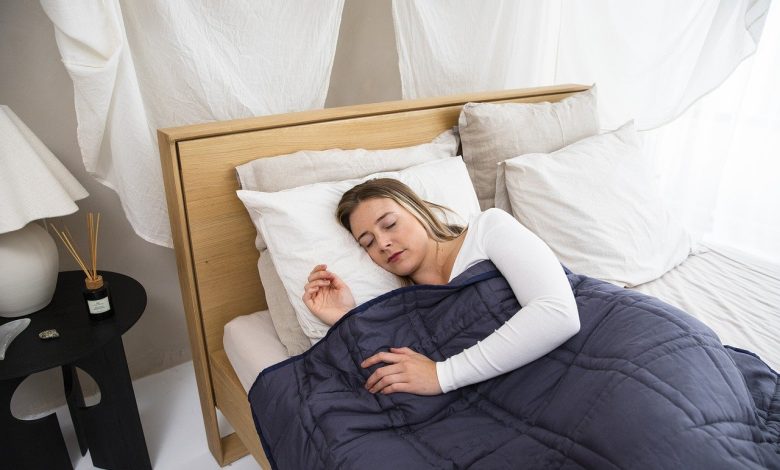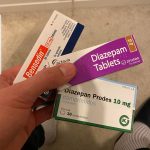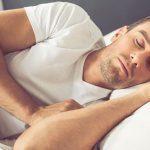Is 5mg Diazepam Strong Enough For Sleep?

Sleep is a fundamental aspect of overall well-being, impacting both physical and mental health. However, for many individuals, achieving a good night’s sleep can be a challenge. Available data indicates that short-term insomnia affects about 30% to 50% of adults at some point in their lives. Chronic or long-term insomnia lasts at least three days per week for three months or longer. An estimated 10% of the adult population experiences chronic insomnia disorder.
Sleep disorders, anxiety, and stress are common factors that contribute to insomnia, prompting people to seek solutions for a restful night. One medication that is frequently prescribed to address sleep-related issues is Diazepam, a benzodiazepine commonly known by the brand name Valium. In this article, we will explore the use of 5mg Diazepam specifically for sleep and its effectiveness in promoting a restful night.
What is Diazepam?
Diazepam is a medication that belongs to the benzodiazepine class of drugs. It is widely used for various medical conditions, including anxiety, muscle spasms, and insomnia. The drug works by enhancing the effects of a neurotransmitter in the brain called gamma-aminobutyric acid (GABA). GABA is known for its calming effects, and by increasing its activity, Diazepam helps to reduce excessive brain activity and induce a state of relaxation.

5mg Diazepam Dosage
The typical starting dose of Diazepam for sleep is often 5mg. This dose is considered mild and is generally well-tolerated by most individuals. However, the effectiveness of the medication can vary from person to person, and several factors can influence how well it works for sleep.
Factors Influencing Effectiveness
1. Individual Variability: People react differently to medications, and what works well for one person may not be as effective for another. Factors such as age, weight, and overall health can impact how the body processes and responds to Diazepam.
2. Underlying Conditions: The underlying cause of sleep disturbances plays a crucial role in determining the effectiveness of Diazepam. If the insomnia is primarily related to anxiety or stress, Diazepam’s anxiolytic (anxiety-reducing) properties may contribute to improved sleep.
3. Tolerance: With prolonged use, individuals may develop a tolerance to the sedative effects of Diazepam. This means that over time, the same dose may become less effective, requiring an adjustment in dosage or a change in treatment approach.
4. Duration of Use: Diazepam is generally recommended for short-term use due to the risk of dependence and tolerance. Prolonged use can lead to withdrawal symptoms and other potential side effects.
5. Interactions with Other Medications: The concurrent use of other medications can influence the effectiveness of Diazepam. It’s crucial to inform your healthcare provider about all medications, supplements, and herbs you are taking to avoid potential interactions.
How Effective is 5mg Diazepam for Sleep?
The effectiveness of 5mg Diazepam for sleep depends on various factors, as mentioned earlier. For many individuals, especially those with acute insomnia or anxiety-related sleep disturbances, a 5mg dose may be sufficient to promote relaxation and facilitate sleep. However, studies have shown that total sleep time increases with diazepam10 mg as compared to 5mg.
It’s important to note that Diazepam is not a cure for insomnia but rather a treatment option to manage symptoms. It helps address the underlying issues contributing to sleep difficulties, offering a temporary solution while individuals work on long-term strategies for improving sleep hygiene and managing stress.
Safety Considerations
While Diazepam can be effective for sleep, it is not without risks. Like all medications, it comes with potential side effects and considerations that should be taken into account:
1. Dependence and Addiction: Benzodiazepines, including Diazepam, have the potential for dependence and addiction, especially with prolonged use. Abrupt discontinuation can lead to withdrawal symptoms, reinforcing the importance of using Diazepam under close medical supervision.
2. Cognitive Impairment: Diazepam can cause drowsiness and cognitive impairment, affecting coordination and attention. It is important not to engage in activities that require mental alertness, such as driving, while under the influence of the medication.
3. Respiratory Depression: In high doses or when combined with other central nervous system depressants, Diazepam can lead to respiratory depression, a potentially serious condition where breathing becomes slow and shallow.
4. Drug Interactions: Diazepam can interact with other medications, amplifying or diminishing their effects. It’s crucial to inform your healthcare provider about all substances you are taking to prevent adverse reactions.
5. Tolerance: As mentioned earlier, tolerance can develop with prolonged use, necessitating dosage adjustments or changes in treatment plans.
Alternatives and Complementary Approaches
While Diazepam is a commonly prescribed medication for sleep, it’s not the only option available. Some individuals may prefer non-pharmacological approaches or may not be suitable candidates for benzodiazepines. Here are some alternatives and complementary approaches to consider:
1. Cognitive Behavioral Therapy for Insomnia (CBT-I): CBT-I is a structured program that addresses the thoughts, behaviors, and habits contributing to insomnia. It is considered a first-line treatment for chronic insomnia and has been shown to be effective without the potential risks associated with medication.
2. Lifestyle Changes: Improving sleep hygiene, such as maintaining a regular sleep schedule, creating a comfortable sleep environment, and avoiding stimulants close to bedtime, can significantly impact sleep quality.
3. Relaxation Techniques: Practices such as deep breathing, progressive muscle relaxation, and meditation can help calm the mind and promote relaxation, making it easier to fall asleep.
4. Over-the-Counter (OTC) Sleep Aids: Some individuals may find relief from mild sleep aids available over the counter. These often contain antihistamines with sedative properties.
5. Prescription Sleep Medications: In addition to Diazepam, there are other prescription medications specifically designed to address sleep difficulties, such as zolpidem (Ambien) or eszopiclone (Lunesta). These medications may have different mechanisms of action and side effect profiles compared to benzodiazepines.
Conclusion
In conclusion, 5mg Diazepam can be effective for promoting sleep in certain individuals, particularly those with anxiety-related insomnia. However, its use should be approached with caution due to the potential for dependence, tolerance, and other side effects. It is crucial to work closely with a healthcare provider to determine the most appropriate treatment plan, considering individual factors and the underlying causes of sleep disturbances.
While medication can be a valuable tool in managing sleep difficulties, it is equally important to explore and implement non-pharmacological approaches for long-term improvement in sleep quality. Lifestyle changes, cognitive-behavioral interventions, and relaxation techniques can complement or, in some cases, replace the use of medication, providing a holistic and sustainable approach to achieving restful sleep.





